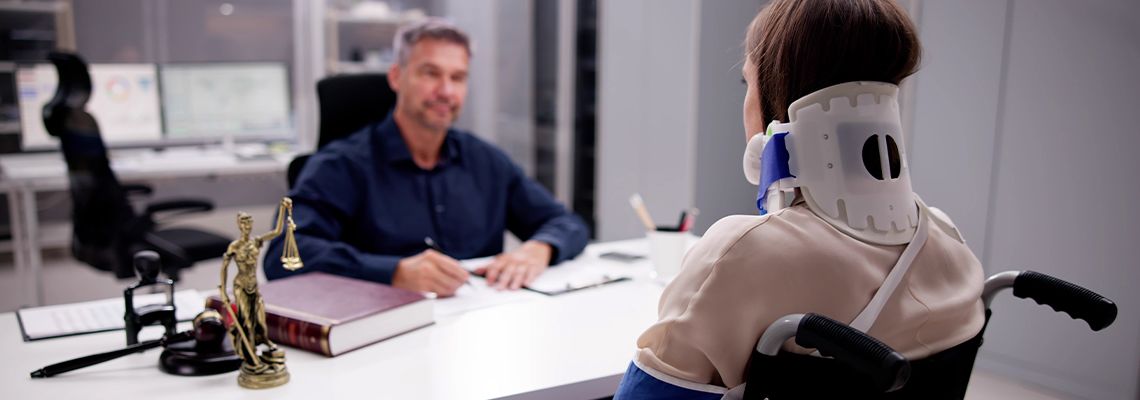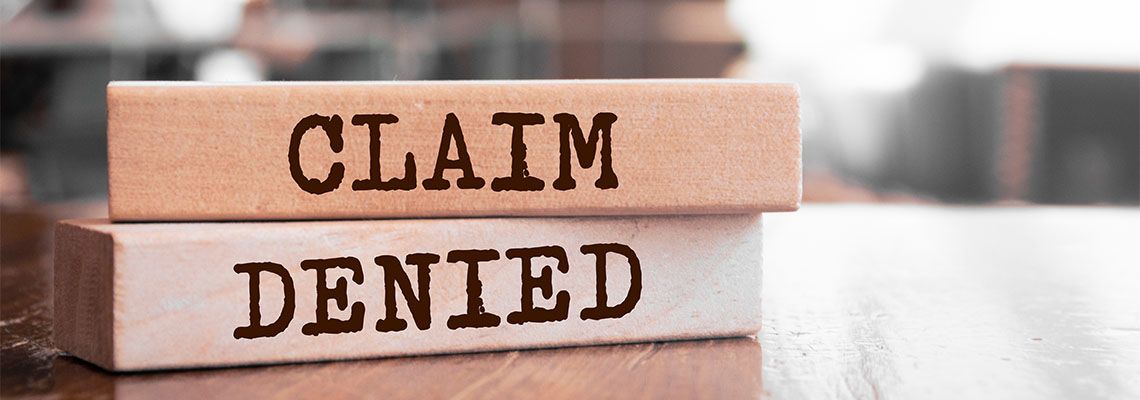When a collision with a commercial truck turns life upside down, the shock doesn’t fade quickly. Injuries can be severe, medical bills pile up fast, and work may suddenly feel out of reach.

addressing your personal injury questions
Being injured in an accident can be a life-changing experience. Whether it’s a car crash, slip and fall, or medical malpractice, personal injuries often come with physical pain, emotional trauma, and financial stress. In the midst of dealing with medical treatments and recovery, many people find themselves overwhelmed by legal questions.
Fortunately, you can turn to our law firm at SJP Sifers Jensen and Palmer. We have 98 years of collective experience providing assistance to Kansas City, Missouri; Springfield, Missouri; and the Kansas City Metropolitan Area, Kansas. We can address some of the most common personal injury questions to help you with the legal process.
Whether you’ve just experienced an accident or are in the middle of a personal injury claim, this guide will provide you with essential information to understand your rights and the steps you should take.
What Is a Personal Injury Case?
A personal injury case arises when someone is harmed due to the negligence, recklessness, or intentional actions of another person, company, or entity. The injured person (the plaintiff) can pursue compensation for their injuries by filing a claim or lawsuit against the at-fault party (the defendant).
The goal of a personal injury case is to make the injured person whole again by awarding damages that cover medical bills, lost wages, pain and suffering, and other losses.
Common Types of Personal Injury Cases:
Car Accidents: When a driver’s negligence, such as speeding, impaired driving, or distracted driving, leads to a crash and injuries.
Slip and Fall Accidents: Property owners can be held liable when unsafe conditions cause a person to slip or trip and get injured.
Medical Malpractice: When a healthcare provider’s failure to follow proper medical practices leads to injury or worsened medical conditions.
Product Liability: When defective or dangerous products cause harm to consumers.
Workplace Injuries: While workers' compensation is often the route for job-related injuries, certain situations may allow for personal injury claims.
Dog Bites: Owners can be held responsible for their pet’s aggressive behavior when it results in an injury.
What Should I Do Immediately After an Accident?
The steps you take immediately after an accident can have a significant impact on your personal injury claim. Here’s what you should do if you’ve been injured in an accident:
1. Seek Medical Attention
Your health and safety should always be the top priority. Even if you feel fine, some injuries, such as concussions or internal injuries, may not show symptoms right away. Seeing a doctor is important for getting your injuries properly diagnosed and treated.
2. Document the Incident
Gather as much evidence as possible from the scene of the accident. If you’re physically able, take photos of the location, your injuries, and any property damage. If there are witnesses, ask for their contact information. Having detailed documentation will help support your personal injury claim later on.
3. Report the Accident
Depending on the type of accident, it may be necessary to report it to the appropriate authorities. For car accidents, you should file a police report. If you were injured on someone’s property, notify the owner or manager. Having an official record of the accident can be crucial to your case.
How Do I Know If I Have a Valid Personal Injury Claim?
To have a valid personal injury claim, you must be able to prove three key elements:
Duty of Care: The defendant had a legal responsibility to act with reasonable care to avoid causing harm. For example, drivers have a duty to obey traffic laws and drive safely to prevent accidents.
Breach of Duty: The defendant breached their duty of care by acting negligently, recklessly, or intentionally. In a car accident, for instance, the driver may have breached their duty by speeding or texting while driving.
Causation and Damages: The defendant’s breach of duty must have directly caused your injuries, and you must have suffered actual damages (such as medical expenses, lost wages, or pain and suffering).
If these elements are present, you likely have a valid personal injury claim. However, the specifics of each case can vary, so it’s always best to consult with a personal injury attorney who can evaluate the details of your situation.
What Is Negligence, and How Does It Affect My Case?
Negligence is a legal concept central to most personal injury claims, defined as a failure to exercise reasonable care that results in harm to another person. To establish negligence in a personal injury case, it’s essential to demonstrate that the defendant's careless or reckless actions directly caused your injuries.
This involves showing that the defendant owed you a duty of care, meaning they had a legal obligation to act in a manner that wouldn't cause harm. When the defendant fails to fulfill that duty, it constitutes a breach of duty. It's necessary to connect this breach to your injuries, establishing causation. Finally, you must prove that you experienced actual harm or losses as a result of the injury.
In certain situations, both parties involved in an accident may share some degree of fault. Missouri operates under a comparative negligence rule, which means that your compensation can be reduced based on your percentage of fault in the incident. This legal baseline emphasizes the importance of understanding the circumstances surrounding the accident and how liability is assessed in personal injury cases.
How Much Compensation Can I Receive?
The amount of compensation you can receive in a personal injury case depends on several factors, including the severity of your injuries, the impact on your life, and the degree of fault in the accident. Compensation is typically divided into two categories: economic damages and non-economic damages.
Economic Damages
These are the tangible, financial losses you’ve incurred as a result of your injury, including:
Medical Expenses: This includes hospital bills, doctor visits, surgeries, medication, physical therapy, and any other medical treatments related to your injury.
Lost Wages: If your injury caused you to miss work, you can be compensated for lost income. This also includes future lost earning capacity if your injury prevents you from returning to work.
Property Damage: If your property was damaged in an accident (such as your car in a car crash), you can recover the cost of repairs or replacement.
Non-Economic Damages
These damages compensate you for intangible losses, such as:
Pain and Suffering: This includes physical pain as well as emotional distress caused by the accident.
Loss of Enjoyment of Life: If your injury has affected your ability to enjoy everyday activities, hobbies, or relationships, you may be compensated for this loss.
Disfigurement or Disability: If your injury has left you permanently disfigured or disabled, you may be entitled to additional compensation.
In rare cases, punitive damages may be awarded if the defendant’s behavior was especially reckless or malicious. These damages are meant to punish the wrongdoer and deter similar conduct in the future.
Will My Case Go to Trial?
Most personal injury cases are settled out of court through negotiations between your attorney and the insurance company. Settling a case can save time, legal fees, and the uncertainty of a trial. However, in some cases, the insurance company may refuse to offer a fair settlement, or there may be disputes over liability. In these situations, taking the case to trial may be necessary.
If your case goes to trial, it will be heard before a judge or jury. Both sides will present their evidence, call witnesses, and make arguments. After hearing the evidence, the judge or jury will decide whether the defendant is liable and, if so, how much compensation you should receive. While trials can be unpredictable, a skilled personal injury attorney may guide you through the process and advocate on your behalf.
Do I Need a Personal Injury Lawyer?
While it’s possible to handle a personal injury claim on your own, hiring an attorney may increase your chances of receiving fair compensation. Personal injury cases can be confusing, and insurance companies often try to minimize payouts. An attorney has the experience to negotiate with insurance companies and protect your rights.
Contact Us Today
The aftermath of a personal injury can be challenging, but knowing your rights and options is the first step toward recovery. If you’ve been injured in an accident, you may be entitled to compensation. If you have additional questions or are unsure about your case, don’t hesitate to reach out to a personal injury lawyer at SJP Law Firm, LLC. Call us today to schedule a free consultation.
RECENT POSTS
Few situations feel more frustrating than filing a property damage claim in good faith, only to receive a denial letter. After paying premiums for years, many policyholders expect their insurance company to step in when damage occurs. Instead, they’re often met with confusing explanations, partial denials, or outright refusals.



